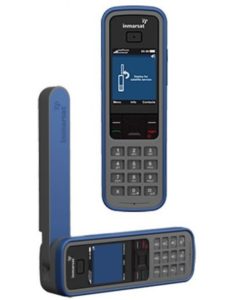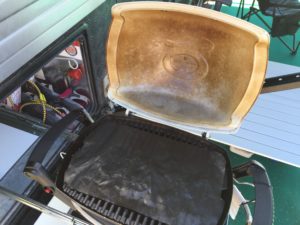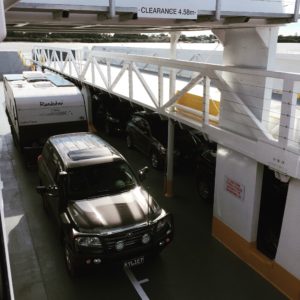RV Pre Trip Checklist
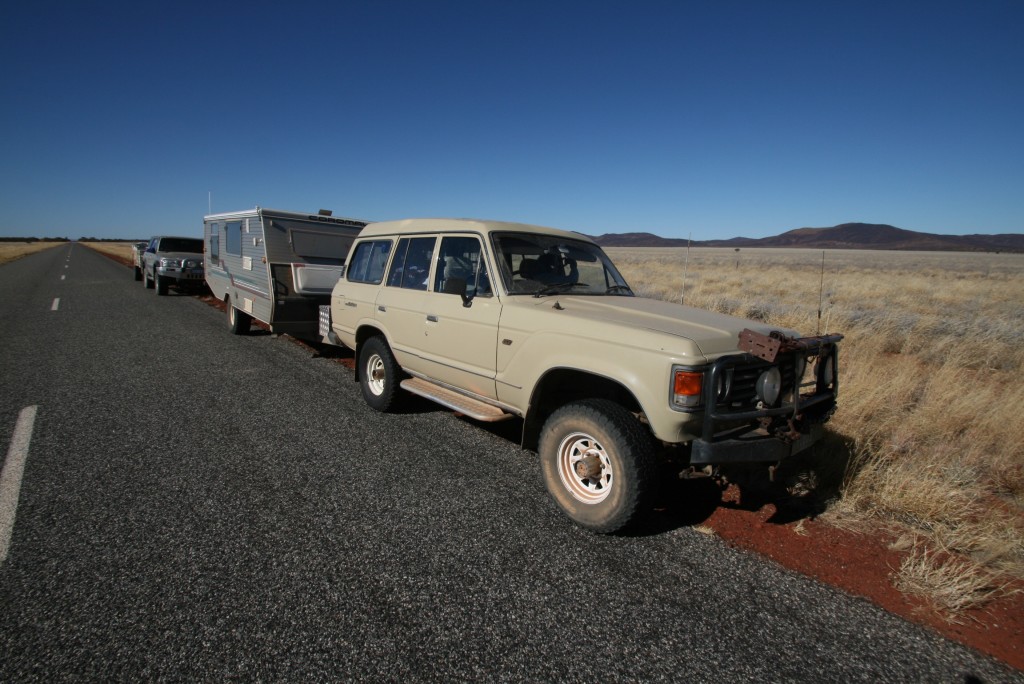
Before you embark on an RV adventure, its essential you are confidant your caravan or camper is in top condition and critical systems like brakes and wheel bearings are serviced and ready to go. In addition, there are a number of simple checks you can do yourself that can really make the difference between a disasterous trip and a memorable holiday.
Check your tires:
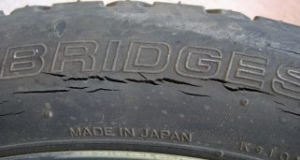 A blown tire is probably the single most common incident that can occur if you're van or camper hasn't been used for a while and has just been sitting in one spot for an extended period of time. Tires can deteriorate and some older tires can develop flat spots. If they have deflated, it’s possible that there could be some damage to the steel belts or sidewalls. The best thing to do is to check the air pressures and pump them up if necessary. If you can see any cracking in the sidewalls or any bulges appear, then it’s time for a new set of tires.
A blown tire is probably the single most common incident that can occur if you're van or camper hasn't been used for a while and has just been sitting in one spot for an extended period of time. Tires can deteriorate and some older tires can develop flat spots. If they have deflated, it’s possible that there could be some damage to the steel belts or sidewalls. The best thing to do is to check the air pressures and pump them up if necessary. If you can see any cracking in the sidewalls or any bulges appear, then it’s time for a new set of tires.
Check your spare tires:
How many times have you heard of someone getting a flat tire and when they went to change it, the spare was flat as well. It happens more often than not and it’s a very simple thing to check before you head off on your trip.
Inspect your tow hitch:
Another often overlooked item on your trailer is the tow hitch which is surprising considering it is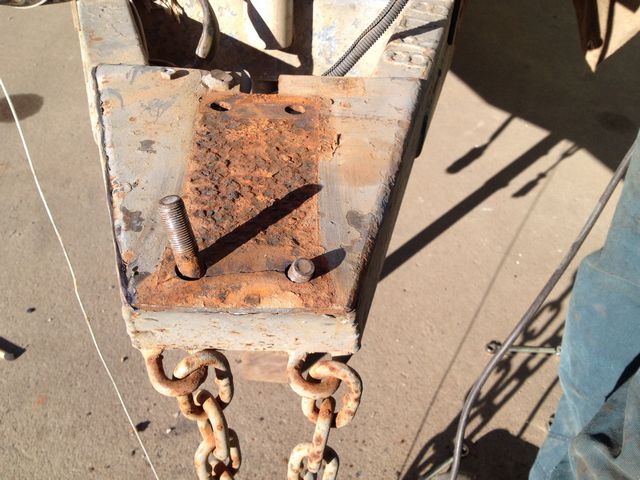 the only critical point connecting the trailer to your tow vehicle. It might shock you to know that many hitches are prone to failure because of the way the van has been constructed. Moisture can develop between the hitch and the trailer base plate causing rust. This often weakens the metal and the bolts holding the hitch on. Have a close look at your hitch, especially if the chassis on your trailer is painted rather than galvanized. If in doubt, remove the hitch and give it a good inspection.
the only critical point connecting the trailer to your tow vehicle. It might shock you to know that many hitches are prone to failure because of the way the van has been constructed. Moisture can develop between the hitch and the trailer base plate causing rust. This often weakens the metal and the bolts holding the hitch on. Have a close look at your hitch, especially if the chassis on your trailer is painted rather than galvanized. If in doubt, remove the hitch and give it a good inspection.
Inspect your safety chains:
While you’re looking at the hitch, you may as well ensure your safety chains are in good condition and have not rusted or cracked. Pay particular attention to the D shackles and consider replacing them with new rated items.
Clean your toilet cartridge:
If your van or camper is equipped with a toilet or you carry a portable toilet with you, you may want to give the cartridge a good rinse with water and get it prepared with a little water and whatever chemicals you use. This will help prevent any stale smells in the van and give it a freshen up before you depart. Then it will be ready for that late night emergency.
Check your batteries:
 If your van is equipped with a 12v system, it pays to check the condition of your batteries to ensure you have sufficient power for your holiday, especially if you intend to be away from 240v mains power. Batteries don’t last forever and they can deteriorate even if they have been left on a trickle charger. Turn off the charger and leave the batteries sitting without any load for about 10 minutes. Then, with a multimeter, check the standing voltage. If they are in good condition, they should be showing a voltage of about 12.6 volts or more which equates to 100% State of Charge (SOC). If they are showing anything less than about 12.4 volts, there’s a good chance they are starting to deteriorate. If your charger has a ‘recondition’ charging cycle, you could give that a go. If they drop below 12 volts, they are definitely in need of replacement.
If your van is equipped with a 12v system, it pays to check the condition of your batteries to ensure you have sufficient power for your holiday, especially if you intend to be away from 240v mains power. Batteries don’t last forever and they can deteriorate even if they have been left on a trickle charger. Turn off the charger and leave the batteries sitting without any load for about 10 minutes. Then, with a multimeter, check the standing voltage. If they are in good condition, they should be showing a voltage of about 12.6 volts or more which equates to 100% State of Charge (SOC). If they are showing anything less than about 12.4 volts, there’s a good chance they are starting to deteriorate. If your charger has a ‘recondition’ charging cycle, you could give that a go. If they drop below 12 volts, they are definitely in need of replacement.
Check for mold:
If you have any canvas or an awning, pull them out and check them for any mold. You’ll soon know because it will likely smell like old sweaty socks. You should be able to clean the mold off with hot soapy water or in severe cases, use Exit Mold but don’t leave it on the canvass for too long. Wash it off with soapy water once the mold is removed. Make sure it’s all dry before you pack it away.
Check the trailer lights:
 Trailer wiring is prone to all sorts of issues. Dirt and water gets into the plugs and in some cases they are mounted such that they can be bent and damaged. Connect the trailer lights up and make sure they all work. If you have any problems, you may need to pull apart the plugs to ensure all the wires are connected to the pins. Check out our trailer wiring guide to ensure they are wired up correctly.
Trailer wiring is prone to all sorts of issues. Dirt and water gets into the plugs and in some cases they are mounted such that they can be bent and damaged. Connect the trailer lights up and make sure they all work. If you have any problems, you may need to pull apart the plugs to ensure all the wires are connected to the pins. Check out our trailer wiring guide to ensure they are wired up correctly.
Give the fridge a run:
Whether it’s a 12v or 3 way fridge, it’s a good idea to turn it on for a couple of days before you head off to ensure it is working properly. There nothing worse than arriving at your destination after a long hot day's drive only to find a fridge full of warm beer and spoiled food. I’ve had this happen before and I can tell you it’s not a pleasant experience especially if you have to rush off to camping store to buy a new one. If it’s a large fridge mounted in your caravan, you could be in for a long wait to get it repaired.
Test your safety switches:
If you’re RV has a 240v system, it is very likely to have at least one safety switch or RCD. These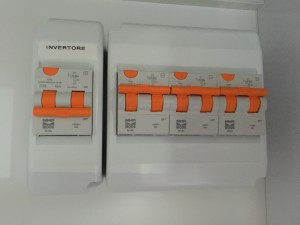 should have a test button on them. Connect the van to the mains power and push the button. It should click off. Then you should be able to simply switch the power back on by resetting the switch. Try out some of your 240v appliances to ensure everything is working as it should. Sometimes small insects can get into these switches and cause all sorts of issues. If you have any doubt, get them replaced before you head off or get the system checked by a qualified RV electrician.
should have a test button on them. Connect the van to the mains power and push the button. It should click off. Then you should be able to simply switch the power back on by resetting the switch. Try out some of your 240v appliances to ensure everything is working as it should. Sometimes small insects can get into these switches and cause all sorts of issues. If you have any doubt, get them replaced before you head off or get the system checked by a qualified RV electrician.
Flush out the Hot Water System:
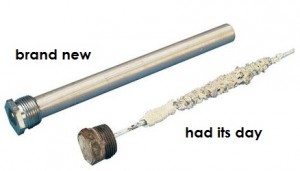 The vast majority of hot water systems fitted to RV’s are the gas/electric tank systems. These are, for the most part, reliable however they are prone to a few issues. The biggest problem is the condition of the sacrificial anode. This is there to prevent the tank from rusting up. Unfortunately these anodes don’t last all that long and they can deteriorate in a matter of months especially if the system hasn’t been used for a while. Further as the anode deteriorates, it leaves a pile of calcium residue at the bottom of the tank. This can get into the plumbing of your van causing all sorts of issues like blocked tempering valves and pipes. The only thing to do is to remove the anode and give the tank a good flush with a hose. If the anode looks like it’s at the end of its life, get it replaced.
The vast majority of hot water systems fitted to RV’s are the gas/electric tank systems. These are, for the most part, reliable however they are prone to a few issues. The biggest problem is the condition of the sacrificial anode. This is there to prevent the tank from rusting up. Unfortunately these anodes don’t last all that long and they can deteriorate in a matter of months especially if the system hasn’t been used for a while. Further as the anode deteriorates, it leaves a pile of calcium residue at the bottom of the tank. This can get into the plumbing of your van causing all sorts of issues like blocked tempering valves and pipes. The only thing to do is to remove the anode and give the tank a good flush with a hose. If the anode looks like it’s at the end of its life, get it replaced.
Flush the water tanks:
If your RV has any on board water tanks, it might be a good idea to drain them of any water and give them a flush out by filling them up and emptying them again. If the water coming out tastes off, you may need to take more drastic action. The internet is full of remedies for making tank water fresh again but the one that seems to get the nod is to pour a bottle of cordial in the tank and take the trailer for a drive. When you get home, flush the cordial out. Supposedly leaves a clean fresh taste in the water. Certainly can’t do any harm.
Restock your supplies:
If you’re like us and you keep your van stocked up with long life food in the cupboards, it might be a good idea to check these over and ensure you haven let any to go past their use by date. Food in tins is not too bad but food stored in jars and plastic wrap can go off. If in doubt, throw it out.
Pack an emergency kit:
All the preparation in the world won’t stop Murphy’s Law coming into play. It pays to be ready to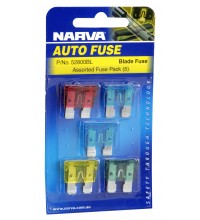 deal with those unexpected issues. Things like blown fuses and globes are easy to fix if you carry some spares. Keeping a selection of screws, nuts and bolts can fix a myriad of issues. We never travel anywhere without a good supply of wire ties, a couple of rolls of thousand-mile-an-hour tape and a few small tubes of supa-glue. We also keep some spare hose connections, a can of WD-40, an assortment of hose clips, wire connections, anything that is small, lightweight and easy to replace. You may not need any of this stuff for yourself but you can almost bet there will be someone around you who will need some assistance. Also keep a couple of battery powered torches handy.
deal with those unexpected issues. Things like blown fuses and globes are easy to fix if you carry some spares. Keeping a selection of screws, nuts and bolts can fix a myriad of issues. We never travel anywhere without a good supply of wire ties, a couple of rolls of thousand-mile-an-hour tape and a few small tubes of supa-glue. We also keep some spare hose connections, a can of WD-40, an assortment of hose clips, wire connections, anything that is small, lightweight and easy to replace. You may not need any of this stuff for yourself but you can almost bet there will be someone around you who will need some assistance. Also keep a couple of battery powered torches handy.
Check your fire safety gear:
An out of control fire in an RV can be absolutely devastating and many people have lost their lives as a result of one. Your van should be equipped with at least one fire extinguisher and a smoke alarm. Check both to ensure they are working. Replace the battery in the smoke alarm if it has one. We also carry a fire blanket as a backup to the extinguisher. It is far more effective for a fire in the kitchen.
Check you gas appliances:
 I like to give all my gas appliances a run before we go away for a trip. This ensures they are working and helps eliminate any air in the gas lines. If you have any problems lighting them or if you smell any strong gas odor, get them checked by a registered gas fitter. I also like to check the gas connections at the bottles for any leaks by ensuring they are tightened up and then pouring some soapy water over them. If there’s any bubbling in the water, it’s a sure sign of a leak that needs inspection by a professional gas fitter.
I like to give all my gas appliances a run before we go away for a trip. This ensures they are working and helps eliminate any air in the gas lines. If you have any problems lighting them or if you smell any strong gas odor, get them checked by a registered gas fitter. I also like to check the gas connections at the bottles for any leaks by ensuring they are tightened up and then pouring some soapy water over them. If there’s any bubbling in the water, it’s a sure sign of a leak that needs inspection by a professional gas fitter.
Final inspection:
Once you’ve done all this, have a good look around and underneath the van for anything that looks out of the ordinary. Anything hanging loose or sitting where it shouldn’t be needs to be checked. Make sure the hand brake is functioning. Check the locks of all your storage compartments to ensure they can still be opened and locked. Make sure the trailer is sitting level on flat ground. Check the stabilizing legs to make sure they will operate when you get to your destination. Look for signs of any leaks once you fill up the water tanks.
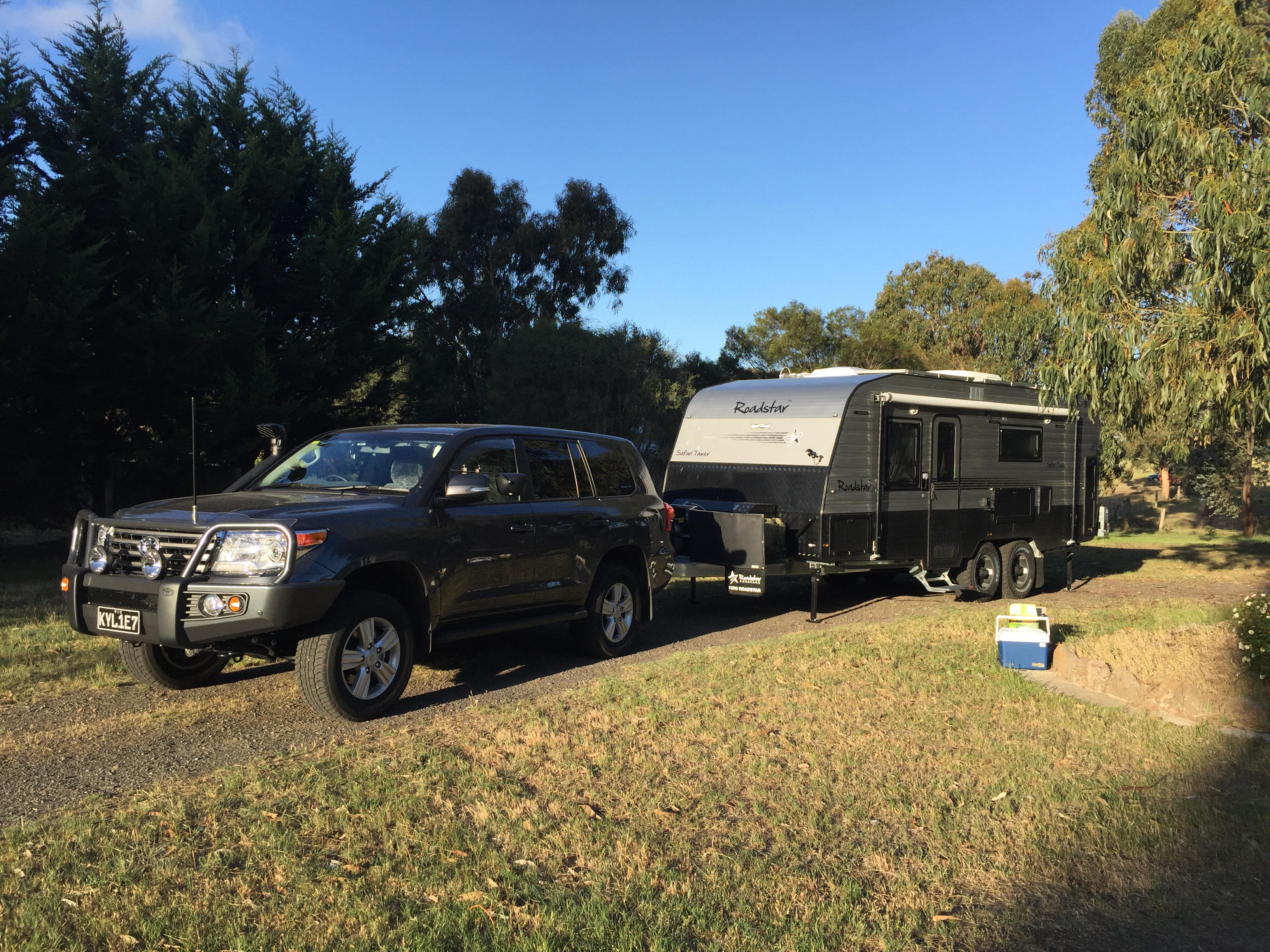
If everything looks like it should and you’ve done all the other preparation described here, you should be right to go. At the very least you’ve gone a long way to ensuring everything will work and you’ll be able to thoroughly enjoy your holiday in safety and comfort.
Safe Travels


